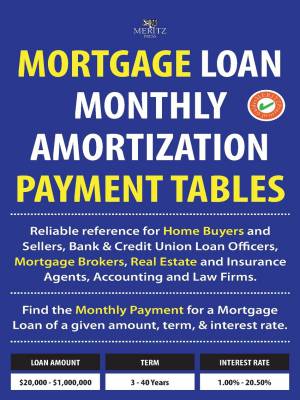Mortgage payment calculators can help investors better understand what their monthly payments are like when taking out a mortgage to buy a home. With key detailed numbers, the Instant Payment Calculator provides an estimated monthly payment amount. If you intend to take out a mortgage, you can use it to test different payment scenarios depending on the length of your loan, the frequency of payments, or the amount of the mortgage, to know the payment, and your mortgage details, allowing you to compare options before deciding on a better home loan
Use the free calculator mortgage payment to help estimate your mortgage payments:
-
Term and interest rate: Choose the payment term and interest rate that best suits your financial needs.
-
Debit time: Decide on a 15- or 30-year mortgage period over which you can repay the entire mortgage.
-
Payment frequency: Choose how often you want to pay your mortgage.
2. Be Careful With Your Mortgage Payments
You need a large sum of money to invest in buying a home. Of course, you want the best interest rates and the lowest mortgage payments you can afford, even if it’s just a small amount of money that can turn into big savings in the long run. for a long time. But how does TD determine what those payments will be? Let’s learn some of the key factors that can affect mortgage payments:
-
Location, location: The city or place where you buy your home can also affect your mortgage interest rate and your payments.
-
Loan Amount: The mortgage amount is equal to the home’s price minus your down payment plus mortgage default insurance if payments are less than 20%. Then the more you borrow, the higher the payment will be, and keep the same amortization period.
-
Compare Fixed Rate with Variable Rate: If you want a fixed–rate mortgage, your interest rate, and payments to be made will stay the same over the life of your mortgage, and this stability will help you with future payments. As for a variable rate mortgage as the TD Mortgage Prime Rate changes, your payment may increase or decrease over the length of your mortgage. If your interest rate increases to the insufficient monthly payment, you may be asked to adjust your payments, make a prepayment, or pay off your mortgage balance.
3. What you need to do to get approved for a mortgage.
Some important things you need to consider carefully before taking out a mortgage:
-
Mortgage loans, like a home loan, car loan, or student loan? Old loans need to be paid off, you do not need to take out new loans, if any, you need to consider carefully before starting the application process.
-
Assess your finances: Your housing payments (e.g., don’t forget property and utility taxes), need to keep accounts payable at 35% or less of revenue Your input.
-
Decide how much to put as a down payment. Under mortgage regulations, homebuyers with a down payment of what percentage must be covered by mortgage default insurance.
Credit score and credit history. These things can affect the main amount that the mortgage lender can approve to lend you.
4. What is a mortgage payment?
Mortgage principal amount: The amount of your mortgage borrowed to buy a home minus the amount paid through previous monthly or two-week payments. Keep in mind that the full amount you paid off that mortgage isn’t going to pay off the mortgage principal. Because any interest debt is prepaid. Once you’ve made the mortgage payments, of course, the principal will be reduced.
5/ How to pay off a mortgage faster
Everyone thinks paying off the mortgage is probably too difficult a task. But even small payments can help you achieve your goals faster and may even save you money on interest costs.:
-
Make the most of one-time payments, the fact that you can make a one-time payment on your mortgage will help you reduce your principal balance and reduce the amount of time your mortgage loan takes to pay as well as save interest on the loan.
-
Choose incremental payments or a shorter amortization period: This option can increase your monthly payments, but it helps you reduce the amount of interest you pay over a shorter mortgage life. Depending on the type of mortgage, mortgage customers can increase their payments up to 100% of the regular payment at any time during the life of the mortgage.

 Shop now on Amazon
Shop now on Amazon